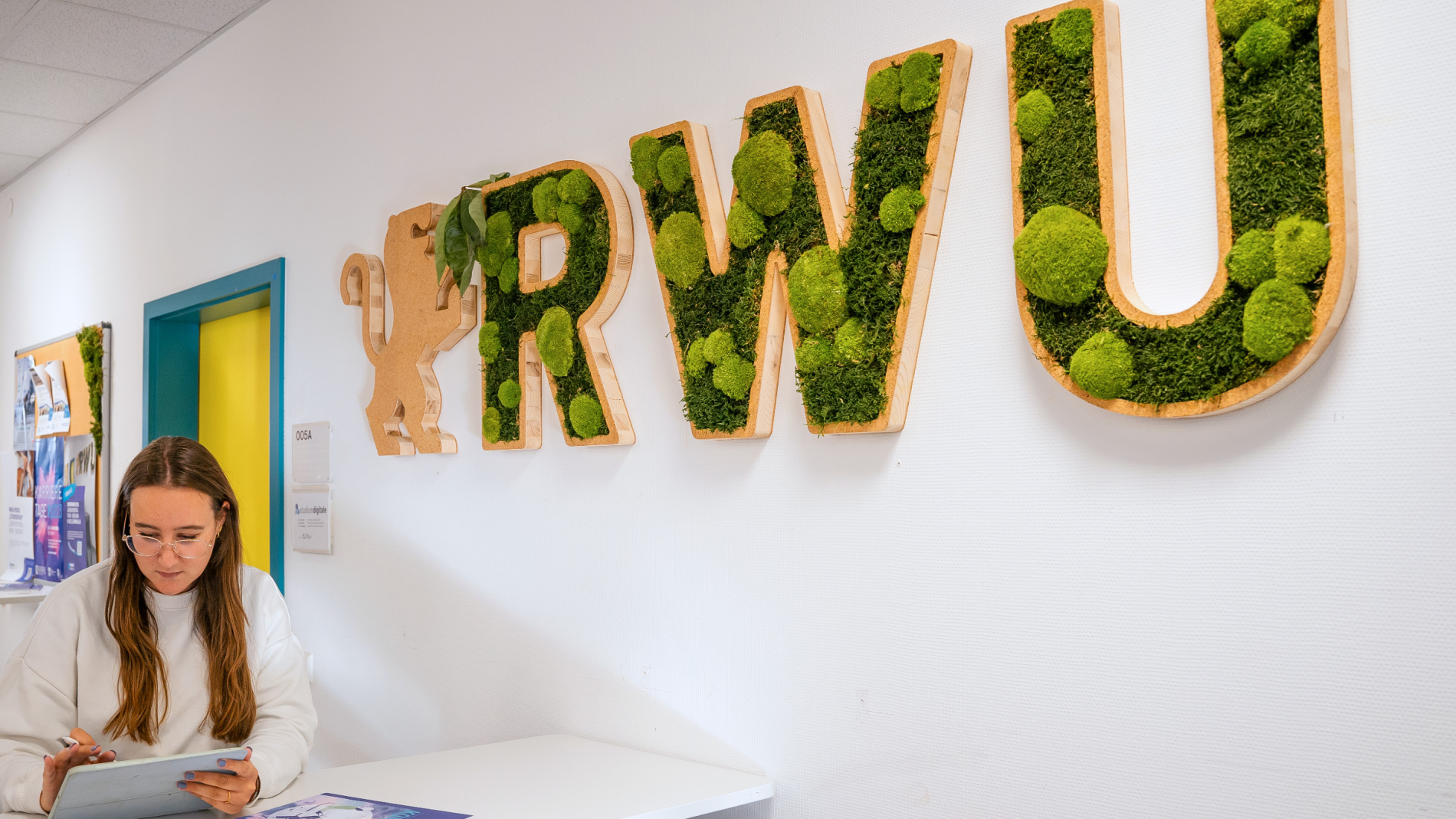
The certification of a quality management system may sound like a rather bureaucratic act. For a university, however, this act - referred to as system accreditation - has immediate and very practical consequences: The university can then develop its range of courses independently. The Accreditation Council has now awarded RWU University Ravensburg-Weingarten system accreditation until 2031, emphasizing its high quality culture.
"Work on this began as early as 2020, when we prepared the required self-report," says Professor Dr. Sebastian Mauser, who is responsible for the accreditation process at RWU in his role as Prorector for Studies, Teaching and Quality Management. "We had to describe our whole quality system, especially the changes since the first accreditation in 2016."
Continuous teaching evaluation
The goal of the quality management system is to ensure that the quality of the degree programs is sustainable. Various processes are used at RWU to achieve this: all degree programs and courses, and thus also the teaching staff, are evaluated by students at the end of the semester. In addition, graduates of all degree programs are surveyed two years after graduation.
The evaluation results and other key figures are incorporated into the work of the study commissions of RWU's 31 degree programs, in which, in addition to the program directors, other faculty and students work on the continuous development of the degree programs in an annual program monitoring process. All of this is orchestrated by RWU's QM team.
Multi-level concept of quality assurance
The actual accreditation of a study program then takes place every eight years through so-called peer reviews. During this process, a group of experts consisting of external scientists, experts from professional practice, students and graduates scrutinize the above-mentioned evaluations, the study program concept, the study and examination regulations and the module handbook. In addition, surveys are conducted among the teaching staff and students. This results in recommendations and requirements that the study program must subsequently implement.
"We described this entire multi-stage concept of our internal quality assurance in the self-report. Based on this, two inspections then took place here at RWU in 2022," Sebastian Mauser reports. In random samples, the functionality and effectiveness of the quality management had to be precisely demonstrated on the basis of five study programs.
Further development implemented in the study programs
Finally, all these documents went to the Accreditation Council, a joint institution of the German states for "quality assurance in teaching and learning at German universities". The Accreditation Council has now granted RWU system accreditation for another eight years until 2031. "We were certified as having a particularly high quality culture," Sebastian Mauser is pleased to report.
"Even though the effort is great, system accreditation gives us a high degree of flexibility and independence," says RWU's Rector, Professor Dr. Thomas Spägele. In addition, quality awareness is growing as a result. "The critical view and further development are implemented in our study programs. And not in a bubble," says Thomas Spägele, "but with the inclusion of external perspectives and, above all, with the inclusion of the view of our students."
Text: Christoph Oldenkotte